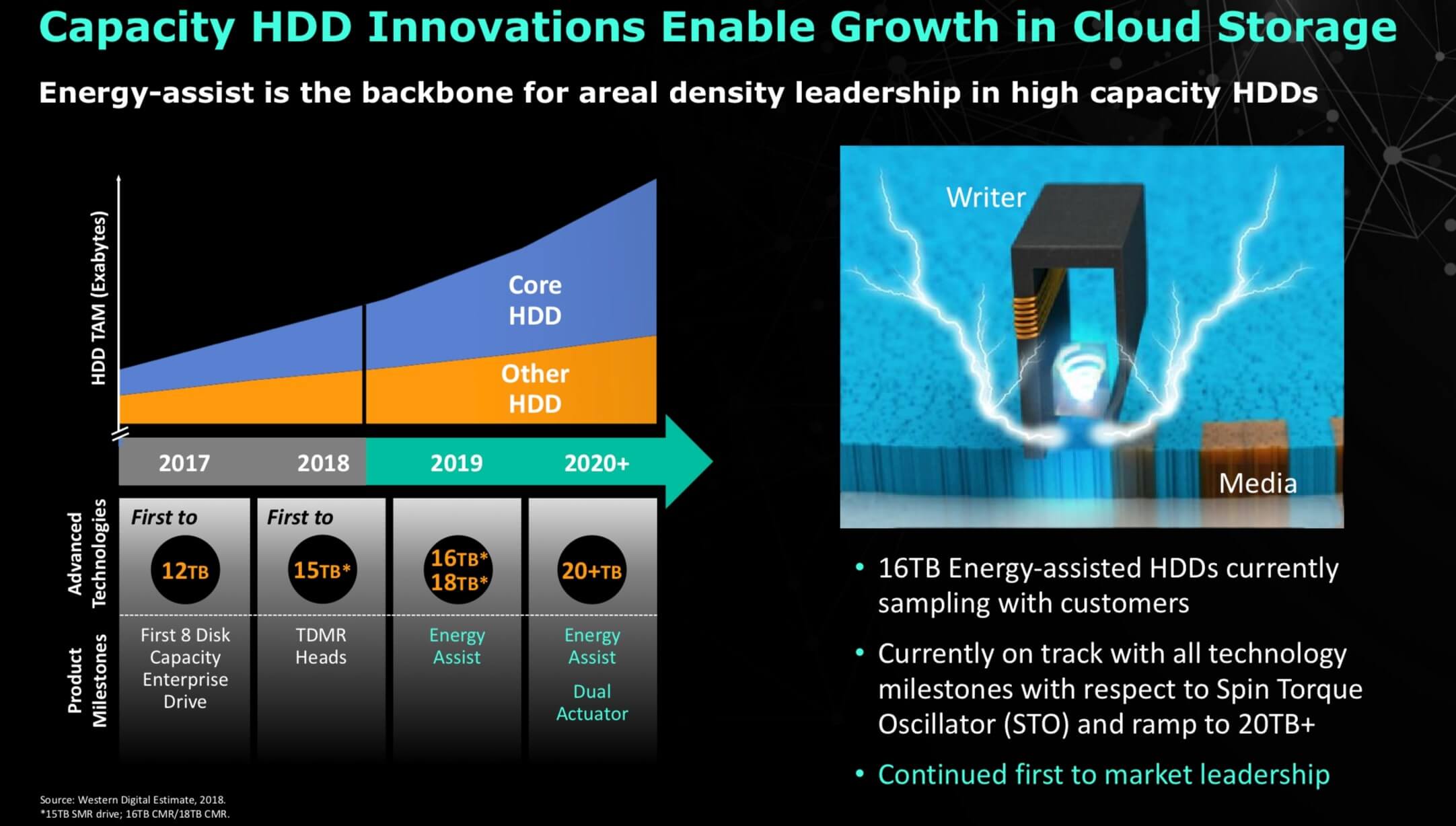Through the looking glass: Western Digital’s CEO Michael Cordano revealed at a finance meeting last month that their 16TB hard drives have passed all their internal tests and are in companies’ hands right now. He also revealed a new roadmap, that shows 16TB and 18TB hard drives launching this year and capacities of at least 20TB launching in 2020.

The price hasn’t been revealed yet, but given the product is targeted towards datacenter and enterprise use cases, pricing will undoubtedly reflect that. For comparison, 14TB hard drives run about $500 to $600, which is about 20% more per GB than a decent value 2TB HDD.
Performance hasn’t been determined yet either, but there’s a strong possibility it will be 10-15% faster than current high capacity hard drives. WD's 16TB drives will be the first to utilize the new microwave assisted magnetic recording (MAMR) technology. MAMR lets manufacturers increase the density of information stored on the disk, which improves capacity and speed.
Hard drives record information on tiny metal hairs that can be flipped magnetically by the read/write head to represent a 1 or 0. To increase density of storage manufacturers have shrunk the size of those hairs, but as they get smaller, they require more energy to be flipped. Once the head starts outputting more energy, however, the hairs become harder to control and more errors occur.

This Western Digital roadmap suggests that two actuators (the arms the read/write head is attached to) could be used in a single hard drive, potentially creating a RAID 0 situation within one drive. See top image for an artistic rendering.
MAMR solves this problem by integrating a Spin Torque Oscillator into the read/write head that outputs a magnetic field which gives the hairs more energy. Because they’ve got more energy, a separate magnetic field outputted by the read/write component of the head can influence them more easily.
However, Western Digital has revealed that they’re also conducting research into a competing solution called heat assisted magnetic recording (HAMR). HAMR is what Seagate is using for its recently announced 16TB hard drive. It operates on all the same principles as MAMR, but instead of using an electric field to energize the hairs, it uses a tiny laser that heats up the platter to 400C to 700C degrees.
It’s surprising to hear Western Digital is investigating this route, considering they’ve previously declared the laser made it too expensive, and the constant heat too unreliable.
https://www.techspot.com/news/78128-western-digital-sampling-next-gen-16tb-hard-drives.html